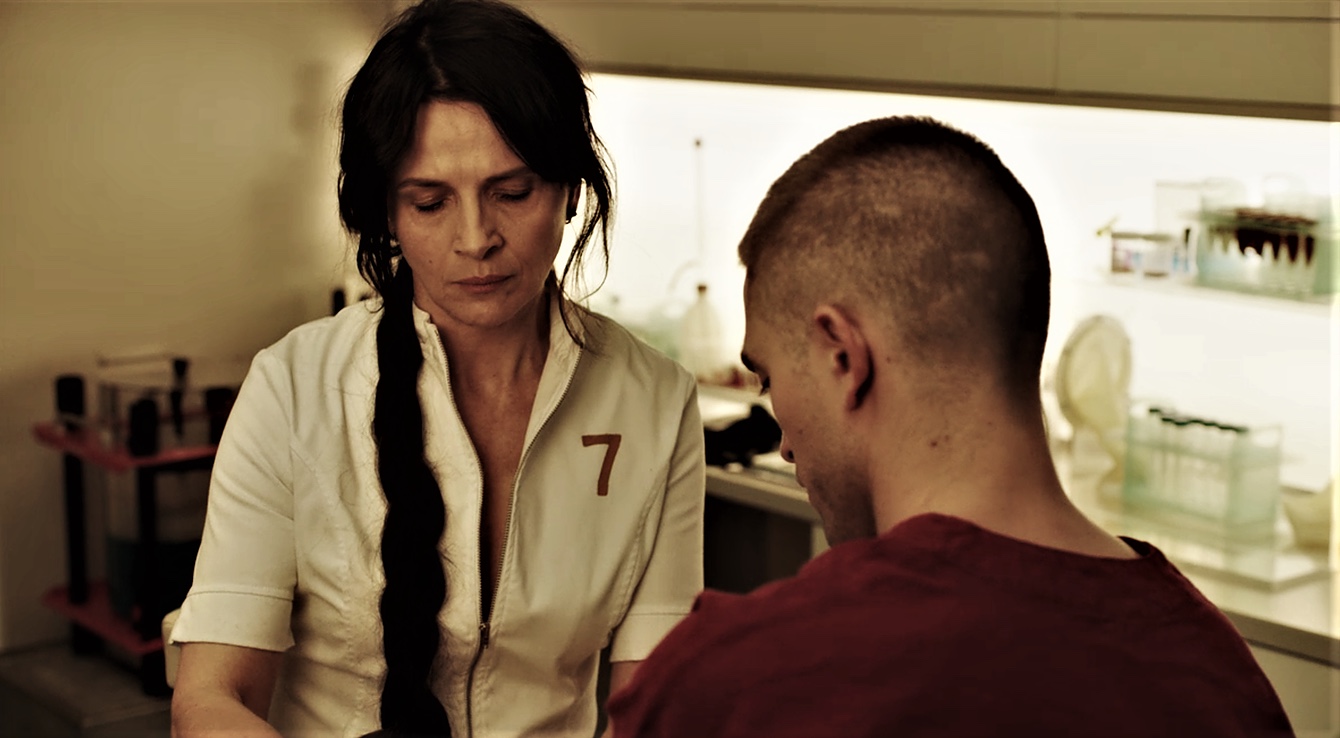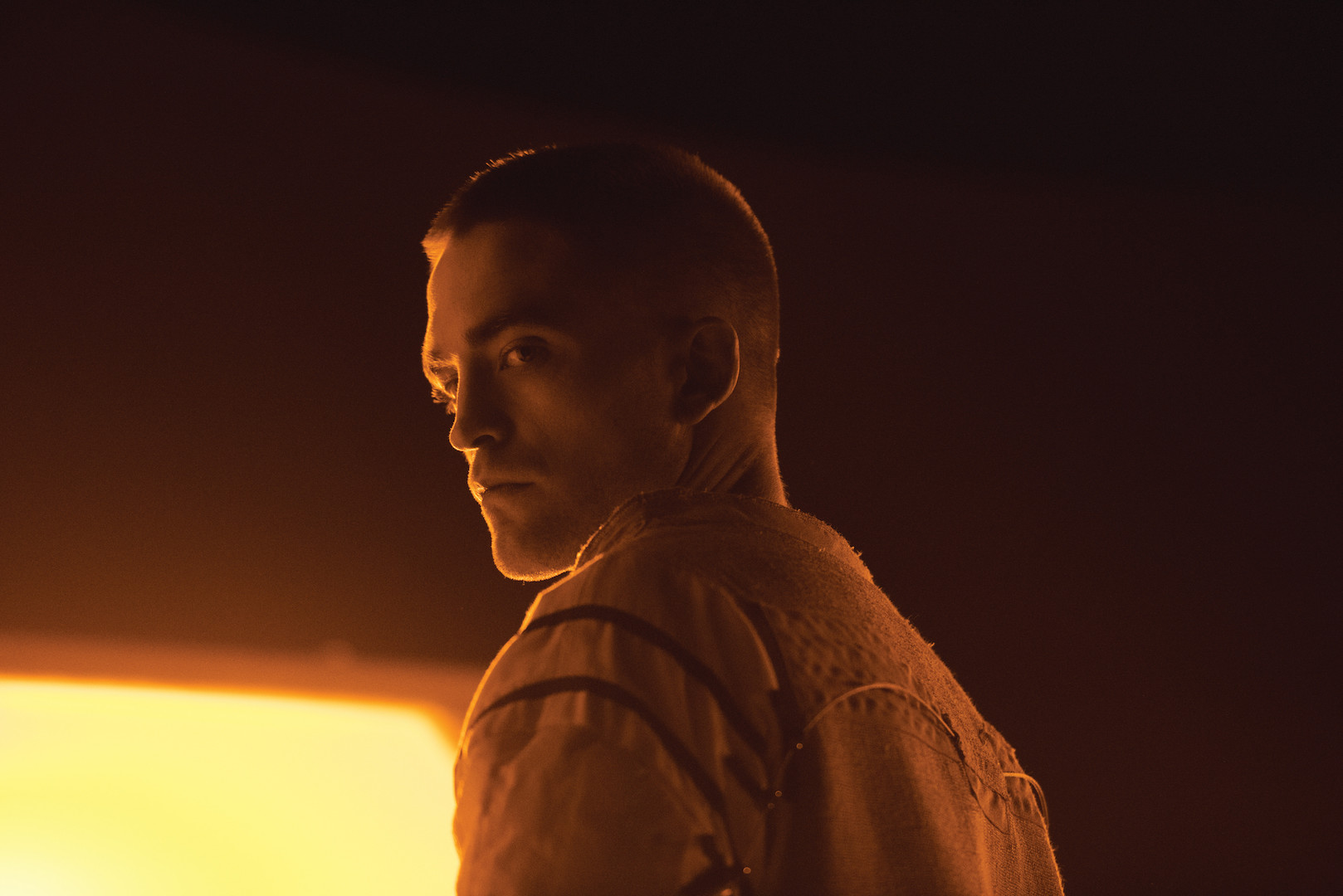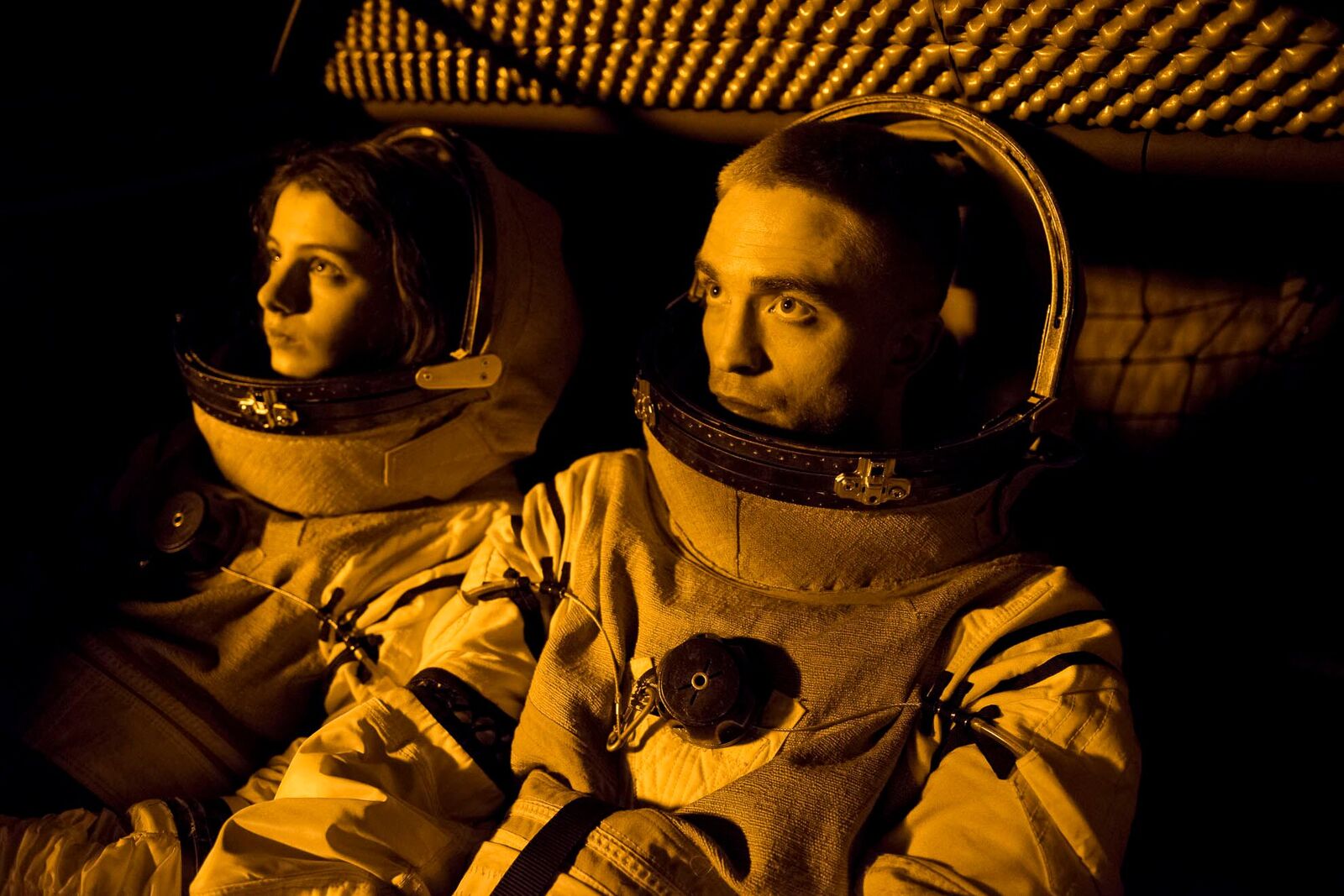Though it’s set in a spaceship helmed by a deranged doctor playing God, High Life depicts chilling scenarios that feel eerily possible on Earth. In the new film by French auteur Claire Denis, prisoners are used as guinea pigs in a science experiment — they’re forced to enter daily reports into a computer to stay alive and they live in extreme isolation and fear. But the scariest thing isn’t the infinite void that surrounds them, it’s the sadistic things they do at their most desperate.
Denis has made a career out of exploring the extremes of human behavior, from carnal passion that turns cannibalistic in Trouble Every Day, to tender love between father and daughter in 35 Shots of Rum. Born in Paris, but raised in colonial French Africa, Denis is known for creating films that explore the ravages of colonialism. In a way High Life continues that trend as its central antagonist exploits the bodies of those around her in an attempt to create life in space.
The film follows a group of death row inmates who are sent to space to try and harness energy from a black hole. On the spaceship, they’re subject to fertility experiments by Dr. Dibs, played by Juliette Binoche. A witchy villain in a white coat, she will seemingly stop at nothing in her attempts to create life outside of the solar system. Robert Pattinson’s character, Monte, tries to abstain, but ultimately falls victim to the doctor’s plot and becomes a father. He then has to try and raise the baby while stranded in space, as the crew dwindles and the spacecraft falls apart.

High Life is Denis’ fourteenth feature film and her first with an all English-speaking cast. The characters speak in American accents because she wanted audiences to “recall a country where the death penalty still exists — like in certain states in the US.”
It’s her most accessible, mainstream film yet, not just because the language barrier is removed, but also because its lead star is a celebrity. In a press release for the film, Denis said that when she first met Pattinson, she “found his beauty intimidating,” and that as she observed him more, she “started becoming more and more unsettled.” “It’s true!” she states plainly, perched in a chair in a brightly lit meeting room at the headquarters of the film’s distributor, A24, in New York. “Yeah right!” Pattinson grins widely, across the table from her. “No, I’m shy!” Denis exclaims in her thick French accent. “I thought, maybe this is too much for me. Now, I know his beauty. I’m used to it, you know? It doesn’t hurt my eyes anymore.” Pattinson cracks up heartily.
“I was afraid that maybe he would immediately be like the hero… I wanted him to be part of that crew of people sent in space. But then of course, immediately I change my mind, because they were all good-looking, so it was almost banal.” The cast, which also includes André Benjamin and Mia Goth, are indeed all good-looking, but it’s their diverse backgrounds in music, theater, and film that lend the film a well-rounded dramatic quality that makes it totally captivating.
High Life raises many ethical questions about sex, consent, reproduction, privacy, and technology, and centers around the idea of monsters. “We were scum, trash, refuse that didn’t fit into the system, until someone had the bright idea of recycling us,” Monte narrates in a downcast tone over flashbacks to the inmates’ lives on Earth before they were locked up. These insults are thrown at Monte and the prisoners repeatedly throughout the film by the doctor — “When I first saw you, you were a filthy little crackhead,” “you’re just a bunch of common criminals, dirty things.” Both the prisoners and the doctor can be seen as monsters, depending on the perspective. None are absolved from their crimes. As the doctor’s actions become increasingly cruel, Denis’s camera trains on her pained face and scarred body. We wonder about the suppressed traumas she’s also suffered, that have contributed to her desire to conduct these atrocities.

Denis is celebrated for creating nuanced characters and digging deep into the darkest crevices of the human psyche. It turns out she suffered her own brush with feeling like a monster at age 18, when she accidentally hit someone with her car while learning to drive. “It was raining — the street was like a river,” she reminisces. “I braked because of a red light, but my car slipped and there was this old guy on a motorbike that I ejected. I got out of the car and I watched him on the pavement. He was old, and there was a lot of blood dripping from the helmet. With the rain, it was completely…” she brings her hands up to her face and mimes blood pouring down. “I thought, ‘I’ve done something terrible, I’ve killed someone.’ I felt I was a monster, in a way. I felt the responsibility of something terrible.”
The man turned out to only have a minor injury, made to look worse by the rain, she says. But the feeling of being a monster stuck with her. “You can never forget that,” she says solemnly. The experience made Denis understand why people try to find the humanity in even the most merciless characters.
Pattinson leans closer, across the wide table from her, captivated by the story. His character in the film both takes a life and creates one, though it’s not entirely clear how his murderous crime played out. Denis’ famously fluid storytelling style creates mesmerizing moments, but it can leave viewers with more questions than answers. Pattinson says working with the director taught him to trust this process and value not knowing the answer to everything all the time.

“I realized something quite quickly on this film, and I’ve since kept to this afterwards, it’s like don’t ask any questions, especially if you don’t know what you’re doing!” he says with a burst of laughter. “If you don’t ask any questions then it generally ends up fine afterwards. I used to constantly badger directors with endless queries about things, and you realize that you’re just trying to alleviate your nerves, rather than actually ask any questions. And really, there’s nothing to be done until you’re doing it.”
Denis points out that Pattinson didn’t like not knowing where the film was going at first. “He was terrified!” she says, laughing. The two clearly have an easygoing chemistry and the trust required to face the unknown together.
At times High Life exudes nihilism — as the prisoners hurtle toward the black hole, you see the hope draining from their eyes. It’s easy to wonder what the point of any of it is, how and why they could drag their bodies out of their tiny bunk beds every morning. This film arrives at a time when many people are feeling hopeless and questioning their existence. Most of culture has careened into a dark place — from fine art to hip-hop music, themes of alienation, isolation and depression abound. Denis summarizes, “It’s not a very optimistic period, yeah? To be honest.” The one thing we can do, though, is face the music.
Denis says she didn’t set out to make a traditional sci-fi film, she wanted to speak to real experiences. So while it quite literally floats in space, High Life is very much grounded in reality. “I was not going to do the conquest of a new planet to create a colony of great human beings. No,” Denis shakes her head. “I don’t believe in that kind of thing. We don’t need that.”
High Life plumbs the depths of human behavior to show us the worst possible scenarios. But just as its setting in space doesn’t mean it’s a straight-up sci-fi film, its dark subject matter doesn’t make it completely depressing to watch. Actually, it’s quite the opposite. The resilience of Pattinson’s character, Monte, and his unshakeable nurturing for his baby daughter, Willow, exemplify humanity’s strength against all odds. In that way it is a very uplifting film, even hopeful. As we all hurtle toward oblivion, we find that all we need is someone to love.
